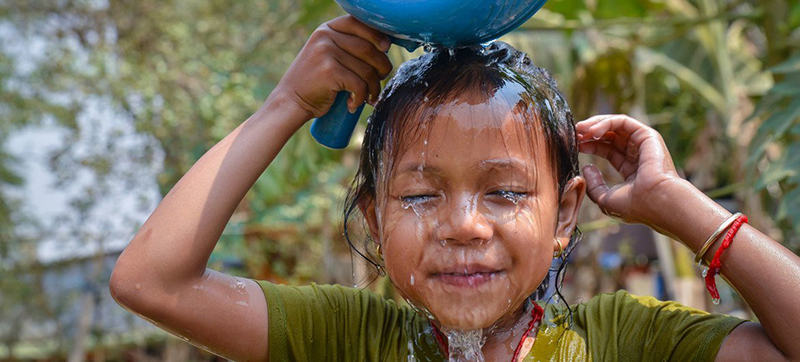 Heatwave
Heatwave
New York: Heatwaves have become an unavoidable health hazard for many nations, but new data indicates that they are set to affect virtually every child on earth by 2050, the UN Children’s Fund, UNICEF, warned on Tuesday.
Today, at least half a billion youngsters are already exposed to a high number of heatwaves, placing them on the front lines of climate change, the UN agency noted.
By the middle of this century, moreover, it estimates that more than two billion children will be exposed to “more frequent, longer lasting, and more severe” heatwaves.
“The climate crisis is a child rights crisis – and it is already taking a devastating toll on children’s lives and futures,” warned UNICEF Executive Director, Catherine Russell.
This year’s wildfires and heatwaves that have swept through India, Europe, and North America were “yet another sobering example of the impact of climate change on children”, she added.
Youngsters at greater risk
New data from the agency published in its report, The Coldest Year Of The Rest Of Their Lives, underscores that young children face greater risks than adults when faced with extreme heat events.
This is because they are less able to regulate their body temperature compared to adults. The more heatwaves children are exposed to, the greater the chance of health problems including chronic respiratory conditions, asthma, and cardiovascular diseases.
“The world urgently needs to invest in building their resilience – and in adapting all the systems children rely on to meet the challenges of a rapidly changing climate,” UNICEF maintained.
This is regardless of whether average global temperatures rise by 1.7 degrees Celsius above pre-industrial levels if greenhouse gas emissions are low, or whether they rise by 2.4C, if emissions are high.
Protection – the priority
Protecting children from the escalating impacts of heatwaves should be a priority for all countries, UNICEF said, in a call for “urgent and dramatic emissions mitigation measures to contain global heating - and protect lives”.
Children in northern regions will face the most dramatic increases in high heatwave severity, while by 2050, nearly half of all children in Africa and Asia will face sustained exposure to extreme high temperatures over 35C (95F), UN Children’s Fund data showed.
“This will have a devastating impact on children,” said Vanessa Nakate, climate activist and UNICEF Goodwill Ambassador. “The more frequent, longer lasting and more severe heatwaves children are exposed to, the greater the impacts on health, safety, nutrition, education, access to water and future livelihoods.”
Adaptation call
Highlighting the devastating impact of drought in the Horn of Africa after four failed rainy seasons, Ms. Nakate insisted that “lives are being lost from preventable causes because the world is acting too slowly on mitigation and not providing enough support for adaptation”.
Children “who are least responsible for climate change are bearing its biggest costs”, she continued, noting that although Africa produces less than four per cent of global emissions, it suffers some “most brutal” impacts of the climate crisis.
“Almost every country is experiencing changing heatwaves,” UNICEF said. “What each government does now will determine the survival of those least responsible for this crisis – our children and young people.”
Support Our Journalism
We cannot do without you.. your contribution supports unbiased journalism
IBNS is not driven by any ism- not wokeism, not racism, not skewed secularism, not hyper right-wing or left liberal ideals, nor by any hardline religious beliefs or hyper nationalism. We want to serve you good old objective news, as they are. We do not judge or preach. We let people decide for themselves. We only try to present factual and well-sourced news.







